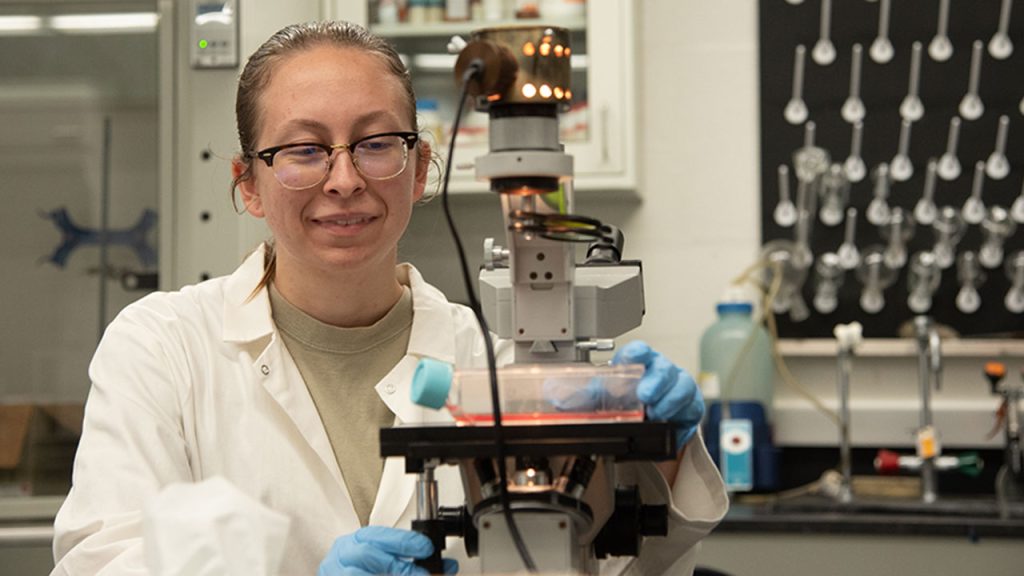As she talks about her biochemistry research, Mary Biggs beams over something exciting that happened just a few weeks ago: the publication of the first scientific research for which she was lead author. It happened on Aug. 27, in the journal Biomimetics, on the cusp of her senior year at Fordham College at Rose Hill.
“I’m still not over it, I don’t think,” said Biggs, who has contributed to six other publications as a coauthor.
Targeting Tumors
The publication is also good news in the fight against cancer: It describes a possible new method for treating tumors without the side effects that sometimes accompany chemotherapy. Biggs and her coauthors—Fordham students and alumni and her research mentor, biochemistry professor Ipsita Banerjee, Ph.D.—show how peptides derived from living organisms can be designed to precisely target tumors with chemotherapy drugs. It’s an alternative to a less precise method involving a barrage of synthetic peptides, which can cause damage to cells surrounding the tumor.
After developing a series of naturally derived peptides, the team tested them using computer models and by applying them to tumors grown in their lab. The next step would be testing their efficacy in animals. Biggs and her team members have shared the research at national and regional conferences while working toward publication, “and to have it published is really the culmination of all of that hard work,” she said.
But the research might still be far back in the pipeline, working its way toward publication, if not for a funding award Biggs received last year.
A Gift Toward Science Education at Fordham
In fall 2021, Fordham received a $250,000 gift from the Blavatnik Family Foundation, established by Ukrainian-born industrialist Len Blavatnik to support the arts, culture, and the sciences at institutions around the globe. The gift in support of STEM education at Fordham included funds for student research fellowships, one of which was awarded to Biggs in fall 2023.
It proved a crucial accelerant to her research, making “a world of a difference,” she said.
“I can’t really overstate the level of impact that it had,” she said. “I was able to really devote a lot more time and energy to my research as a direct result of having that funding. It really let me have that one-track-mindedness that I think research requires sometimes.”
Without the fellowship, she would have had to devote more time to paid work, and the research “likely would’ve taken a lot longer,” Biggs said. “It may not have reached the publication stage as quickly as it did.” The fellowship also supported her work on other projects for which she’s now a published coauthor, all of which involved peptides that target different types of tumors, she noted.
Today she’s applying to doctoral programs, possibly with a focus on plant biochemistry. “I’m enormously grateful” for the Blavatnik award, she said, and also expressed gratitude for other financial help that Fordham has provided her. “I wouldn’t have gotten to this point,” she said, “without that robust support.”

